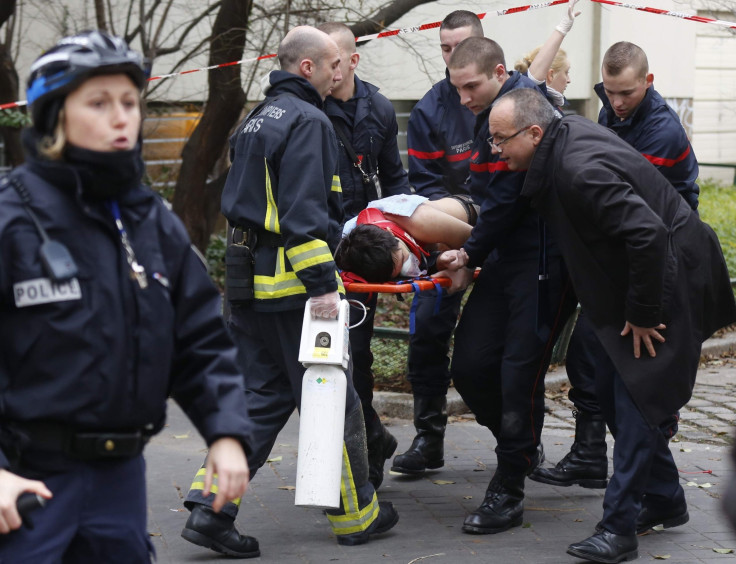Charlie Hebdo Paris Cartoon Shooting Live Stream: French Police Search For Journalists' Killers [VIDEO]

Police and emergency vehicles have crowded the scene of the attack Wednesday on the offices of the French satirical newspaper Charlie Hebdo in Paris as the search for the gunmen who killed 12 people -- 10 journalists and two police -- in an incident labeled as “undoubtedly” linked to terrorism by French President François Hollande. The search continues for the attackers, who were reportedly heard saying, “The prophet has been avenged” and were apparently spurred to commit the shootings as revenge for Charlie Hebdo’s cartoons that were deemed by some to insult Islam.
NBC News has a live stream of the scene of the Charlie Hebdo shooting, which you can view below:
Charlie Hebdo has faced reprisals for its cartoons before. Its Nov. 3, 2011, issue was "guest edited" by the Prophet Muhammad and included cartoons depicting Islamic men, including one that depicted the prophet and showed his naked rear end. The satirical magazine’s office was then firebombed.
Laurent Leger, a Charlie Hebdo journalist, told CNN in 2012 the satirical magazine’s work wasn’t intended to incite violence. The aim is to laugh," he said. "We want to laugh at the extremists -- every extremist. They can be Muslim, Jewish, Catholic. Everyone can be religious, but extremist thoughts and acts we cannot accept.... In France, we always have the right to write and draw. And if some people are not happy with this, they can sue us, and we can defend ourselves. That's democracy. You don't throw bombs; you discuss, you debate. But you don't act violently. We have to stand and resist pressure from extremism."
Radical Islam hasn’t been the only target of Charlie Hebdo. The publication has also lampooned Hollande and Sony Pictures for its decision to pull “The Interview” from theaters after the company was hacked, allegedly by North Korea. Sony later reversed its decision.
Funny Kim Jong-un pic.twitter.com/W1f9tOEo7m
- Charlie Hebdo (@Charlie_Hebdo_) December 19, 2014Une bonne nouvelle pour le président à la une du dernier numéro de l'année! pic.twitter.com/0t4hB3k61F
- Charlie Hebdo (@Charlie_Hebdo_) December 30, 2014The last message on Charlie Hebdo’s Twitter account before Wednesday’s attack was a cartoon depicting Abu Bakr al-Baghdadi, the leader of the Islamic State militant group, also known as ISIS:
Meilleurs vœux, au fait. pic.twitter.com/a2JOhqJZJM
- Charlie Hebdo (@Charlie_Hebdo_) January 7, 2015© Copyright IBTimes 2025. All rights reserved.






















